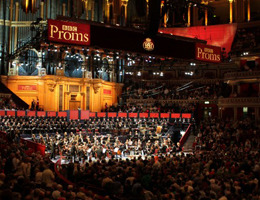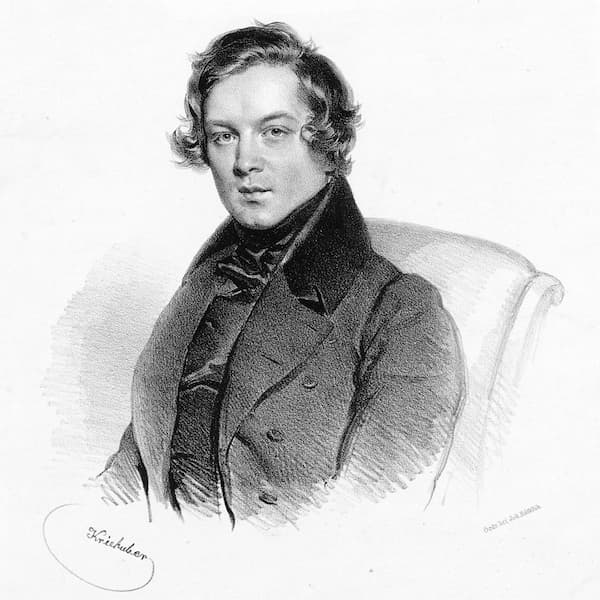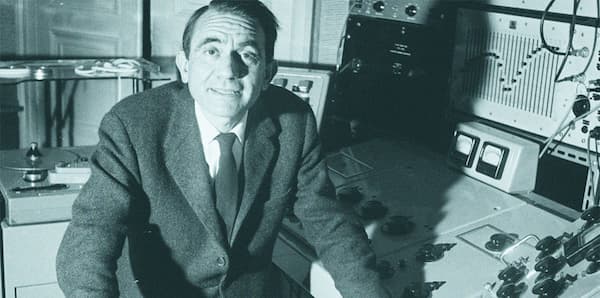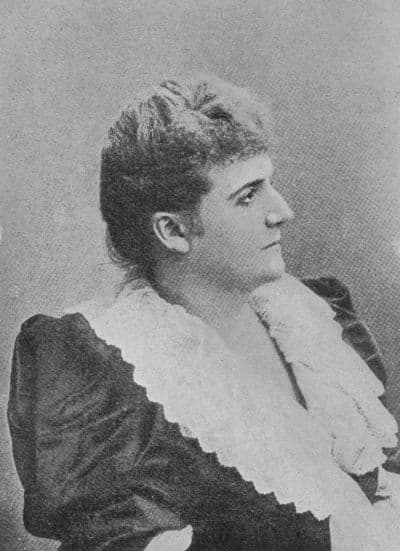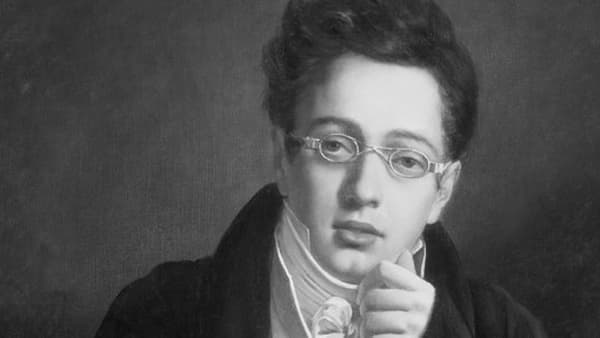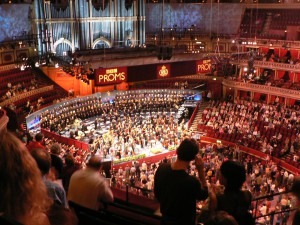
Credit: Wikipedia
The Proms have not always been resident at the Royal Albert Hall. The concert series was pioneered by a Mr Robert Newman, and its first home was the Queen’s Hall on Langham Place, close to where the BBC has one of its main offices and newsroom. In those early days, the programmes were far more varied, and somewhat eccentric or lacking in coherence (a trawl through the BBC Proms Archive site reveals some interesting programmes, cram full with a huge variety of music in one single concert), and often included unscheduled musical offerings. For example, the violinist Fritz Kreisler liked to warm up both himself and the audience with an unprogrammed “appetiser” such as his own ‘Praeludium’. Robert Newman conceived the Proms to encourage an audience who would not normally attend classical music concerts, enticing them with the low ticket prices and a more informal atmosphere. From the earliest days, “promenading” (standing) was permitted, as was eating and drinking. Smoking was also allowed, though patrons were requested “not to strike matches between movements or during quiet passages”. After Newman’s sudden death in 1926, Henry Wood took over the directorship of the concert series. The Proms took up residence at the Royal Albert Hall in 1942 after the destruction of Queen’s Hall, though they moved again during the war to Bedford Corn Exchange, home of the BBC Symphony Orchestra since 1941, and remained at this venue until the end of the war.
Watch the Proms 2015 Launch Film
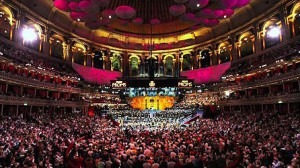
Credit: BBC
Inside, the hall vibrates with the hum of 5000 people in that special state of eager expectation a few minutes ahead of the start of a concert. The orchestra is taking their places, the ‘prommers’ claiming their ‘pitch’ in the arena or high up in the gods. Above the stage, a plush red and gold velvet swag proclaims that these are the ‘BBC Proms’. Then the formalities begin, first with the arrival of the assistant leader of the orchestra, then the leader, and finally the ‘master of ceremonies’, the conductor. With the raise of his baton, the evening’s entertainment is underway.
Elgar: Pomp and Circumstance – BBC Proms 2014
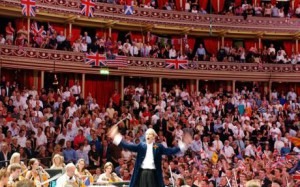
Credit: PA
Official Website

